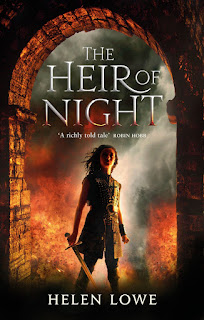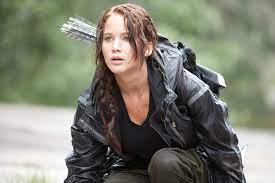.
I believe I may have said I was going to look at "3 C's" in terms of What Makes A Hero?—in which case I definitely misspoke, because how could that question possibly be answered without examining the part played by courage?
 |
| What makes a hero? |
You're so right: it definitely can't be! So having looked at The Call, Circumstance, and Commitment, today's post is zeroing in on Courage.
Because in order to be a hero, it's not enough to just turn up for the regular nine-to-five of fantasy adventure, or even to go above and beyond the norms of everyday duty. The action or deed required of the protagonist has to really matter, and the risk in terms of following through has to be considerable, if not extreme.
 |
| High stakes; higher risk... |
Often, in Fantasy tales, the protagonist must risk their life for others and/or to complete the heroic quest. Yet high risk consequences may also comprise unjust imprisonment, loss of standing and/or livelihood within a society, or outright exile from family, community, nation or species.
In short, answering the call and committing to the degree required to count as heroic, must necessitate either physical and mental, or moral courage—or all three.
 |
In mythic terms, the antecedents are to Odin on Yggdrasil with overtones of the Fisher King, i.e. "the king and the land are one." The courage required of Paul is not only self-sacrifice (because it's unusual for the person bound to the tree to survive) but that of enduring extreme physical and mental deprivation and trauma.
 |
At the outset, I promised to feature non-human as well as human heroes. In the Fantasy pantheon, Paul and Caball are both exemplars of courage.
 |
 |
In terms of non-human heroes, I have a great liking for the plucky and resourceful Ad (Adventure) Fox in Kristin Cashore's fourth Graceling novel, Winterkeep. Although not tested physically like Caball, Ad Fox is a great example of moral and mental courage, actively working to thwart a powerful and ruthless adversary, one bent on the destruction of sentient species and the environment, and who has already killed to achieve their ends.
 |
 |
The reluctant hero is one of the great tropes of heroic epic and the fantasy tradition. A recent exemplar is Kaladin, in Brandon Sanderson's The Way Of Kings. Unquestionably, Kaladin is physically brave. Arguably, though, circumstances require that of him, because he is a convict-cum-slave forced to serve as an army pioneer (a "bridgebearer") in a bitter and drawn out war. Yet Kaladin's conviction and imprisonment, which also comprises expulsion from family and community, is wrongful and grounded in class and societal divisions. So in seeking to overcome his circumstances and save the lives of his fellow Bridgebearers (and a large portion of the army) the chief courage required of Kaladin is to confront and accept who he is in terms of both identity and power.
Yet whether willing or unwilling, and regardless of whether the fortitude required is physical, mental, or moral, courage in the face of high stakes and higher risk is essential for a Fantasy hero.
© Helen Lowe
~*~
Previous Posts:
January: Looking Forward To An Heroic 2022
March: What Makes A Hero -- and The Call
April: What Makes A Hero #2: Circumstance
May: What Makes A Hero #3: Commitment
~*~

About The Author:
Helen Lowe is an award-winning novelist, poet, and lover of story. With four books published to date, she is currently completing the final instalment in The Wall Of Night series.
Helen posts regularly on her “…on Anything, Really” blog, monthly on the Supernatural Underground, and tweets @helenl0we.


No comments:
Post a Comment